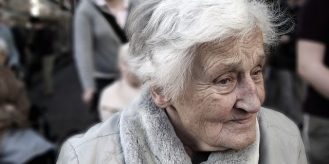There is growing global recognition of the central place of informal family caregivers in the lives of the elderly. Longer life expectancies are significantly increasing the length of time that families are engaged in caring for their loved ones with complex health problems and physical and mental disabilities.
Today’s “sandwich generation” of informal family caregivers are struggling to balance their caregiving for elderly parents or grandparents with their responsibilities at work and caregiving for children and grandchildren.
This is particularly evident in Israel, where a traditionally low rate of institutionalization of the elderly has made informal family caregiving in the community even more important.
Over the years, MJB has been deeply involved in Israel’s efforts to develop and implement effective policies and programs to address these challenges.
Israel’s first national analysis on the extent of informal support and the difficulties faced by caregivers was prepared by MJB in the 1980s. It served as one of the important catalysts in the development of the Long-term Care Insurance Law in 1988.
In 2011, more than two decades after the Long-term Care Insurance Law was put in place, MJB released an updated report on the needs of family caregivers. It analyzed the adequacy of present efforts to address these needs and provided an overview of relevant new international policy developments.
The report contributed to a number of new initiatives in which MJB has been involved. These can be broadly grouped into three strategies.
The first strategy is the development of access to information and advice for families. MJB is evaluating a pilot program of JDC-ESHEL and Israel’s Social Security Administration to develop 1-stop resource centers for caregivers. A particular focus of the research is on how services in the community can coordinate so that they can reach out more effectively to caregivers.
The second strategy focuses on developing more effective support group models, which is a major initiative of the Social Security Administration (SSA). Such groups serve multiple roles and also help to create informal networks that provide on-going support. Based on the lessons learned in MJB’s evaluation and the international literature, the Institute is assisting the SSA and a coalition of voluntary organizations to produce a handbook for social service agencies to implement such groups effectively.
The third strategy focuses on engaging employers and the workplace. This strategy is designed to sensitize employers to the need to take into consideration the caregiving demands on their employees, as well as to become part of the effort in providing needed support. MJB is evaluating a 3-year pilot program, developed by JDC-ESHEL and a leading NGO, Caregivers Israel, which is involved in assisting employers in addressing these needs.
MJB is currently also involved in two national policy developments that will have an important impact on informal family caregivers.
About 60,000 elderly and people with disabilities in Israel lack the capability to make personal and health decisions, and are assigned legal guardians to help in these matters, most of whom are family caregivers. MJB is working with the Ministry of Justice to develop the regulatory system that supervises and supports legal guardians. The new system will help to ensure both appropriate oversight of the care of the elderly, while enhancing the capacity of the families to fulfill their responsibilities as guardians and ensuring they get the support they need.
As reported in the accompanying article on the Center for Research on Aging, MJB played a major role in the development and adoption of Israel’s National Dementia Strategy, and is continuing to work with the government to implement its many recommendations. As part of these recommendations, major attention is being given to support for family caregivers of elderly with dementia.



